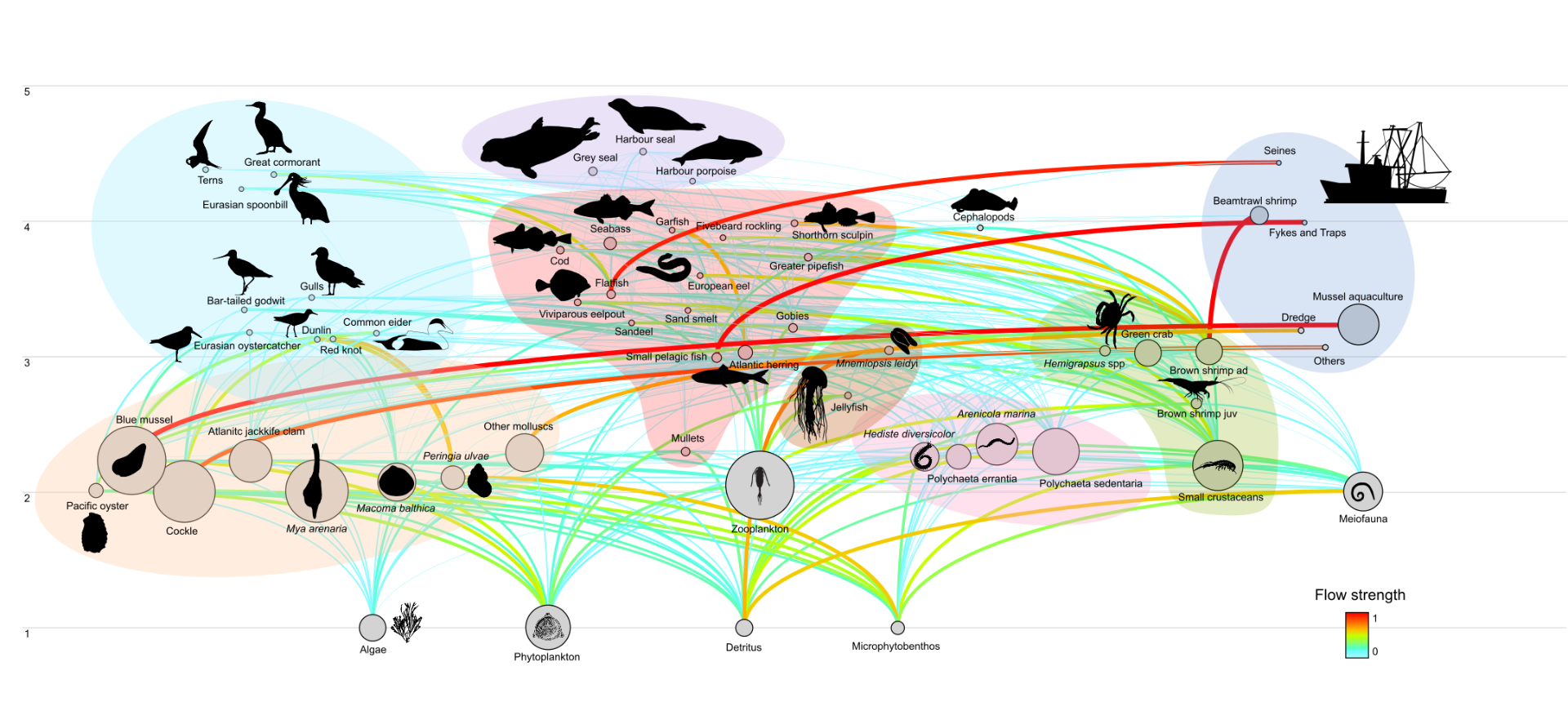Impact of climate change and anthropogenic activities on the food web of the Wadden Sea
The Wadden Sea is a UNESCO World Heritage Site characterized by vast intertidal habitats and a rich and diverse flora and fauna. Its shallow waters form critical nursery habitats for ecologically and commercially important fishes that use the North Sea during their adult phase and foraging and breeding habitats for marine mammals and threatened shorebirds. It serves a particularly important role as a refuelling station in the spring and autumn for migratory birds using the east Atlantic Flyway. From crawling critters to flying creatures, the Wadden Sea encompasses a variety of taxa and trophic groups facing different threats and scenarios. Several questions have been answered on a specific level, but what is happening at the ecosystem level is still unclear.
As part of the EU Marine Research Project ACTNOW (https://www.actnow-project.eu/), we want to study the impact of climate change and anthropogenic activities on the food web of the Wadden Sea, and understand if and how its ecosystem services might be affected.
The student will get hands-on experience on how to use the software Ecopath with Ecosim (EwE) to build a food web model and learn more about ecosystem indicators and food web dynamics.
Requirements
We are looking for a student with good ecological knowledge of the Wadden Sea and its species, basic knowledge in R is needed as further analysis and plots will be done using R. There is the opportunity to be part of the writing and publishing process of manuscripts.
Starting date is flexible, and the student will be based in the Department of Coastal Systems at NIOZ on the island of Texel.
Contact
If you are interested and would like to find out more about this master project, please contact supervisor
Dr. Joana Romero-Henriques (joana.romero@nioz.nl).
